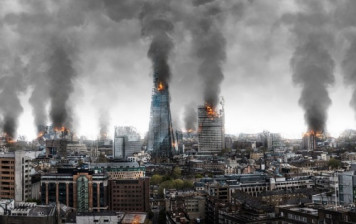
Yuksel A. Aslandogan, Muhammed Cetin
One way to evaluate Gülen’s educational philosophy and its appeal for diverse societies from Turkey to South Africa, and from the Philippines to Romania, is to review what first motivated his philosophy and activism.
Gülen was born in the eastern city of Erzurum during the early period of the newly formed Turkish Republic. He studied at a public elementary school until the third grade. Due to his father’s appointment to a village where there was no public elementary school, he could not attend the remaining grades in elementary school and obtained a diploma later through passing comprehensive examinations. While Gülen mostly continued his secular education through self-study, he always remained a keen observer of the public education system (1).
Gülen sees education as “a humane service.” He says, “We were sent here to learn and be perfected through education” (2). He holds education to be the only lasting solution to the problems facing his society and humanity at large. But in order for education to fulfill its mission, four aspects of the educational enterprise needed to be addressed:
The first was the lack of a synthesis of the heart and mind, faith and reason, or science and religion.
At the root of the predicament of the modern society lies the separation of the heart and the mind in education and scientific thinking. (3)
In Gülen’s view, the formal education system in Turkey has never been promising (4), and contemporary schools have failed society in failing to infuse their students with ethical and spiritual values. As a consequence of this failure, those in charge of scientific and technological development pursued selfish ends instead of serving the needs and interests of society and humanity (5).
Second, there was a need for high scientific, professional and moral standards of teachers, accompanied by an exemplary personal, professional and idealist paradigm of life and work (6).
Gülen therefore helps nurture a movement dedicated to education, but an education of the heart and soul as well as of the mind, aimed at reviving and invigorating the whole being to achieve competence and providing goods and services useful to others (7).
The third was the lack of public support and participation in education. The solution to the problems plaguing society was an overall improvement in education, in Gülen’s estimation. He insisted that this could not be achieved in the hands of a political elite who were estranged from society. Instead, altruistic teachers who view education as a noble profession and the formation of an educator–parent–sponsor triangle were essential. Teachers, administrators, educational policy-makers, parents, sponsors such as entrepreneurs, and civic leaders, in short, almost every segment of society, needed to play a role in this grand social project (8).
Finally, Gülen lamented the politicization of education, science and technology. Webb discusses the period in Turkish history during which Gülen grew up and crystallized his understanding of education and services as follows:
The problems of education and health have been Turkey’s two most important issues since the period of the Ottoman State. The problems continually grew larger during the republican period and were even manipulated for political goals. What aggravated the situation was that ideological and political concerns rather than logic and science ruled almost all the decisions made in the field of education. During this time, Turkey never became a noteworthy country in this field in the international arena. To the contrary, the universities, which should have done high-level scientific work, each became a point of political focus and were in the forefront of the three military coups d’etat. (9)
Refercences:
(1) Ünal, Ali and Williams, Alphonse, eds. 2000. Fethullah Gülen: Advocate of dialogue. Fairfax; The Fountain. Page 322
(2) Ibid, 319
(3) Gülen in Ergene, M. Enes. 2006. Gelenegin modern caga tanikligi. Istanbul: Yeni Akademi Yayinlari. Page: 309
(4) Ünal and Williams 2000:323
(5) Gülen, M. Fethullah. 2000. Pearls of Wisdom. Ali Ünal, trans. Fairfax: The Fountain. Page: 77
(6) Gülen in Ünal and Williams 2000:310
(7) Woodhall, Ruth and Çetin, Muhammed. 2005. Preface in The statue of our souls: Revival in Islamic thought and activism. M. Fethullah Gülen. New Jersey. The Light Inc. Page: xi-xii
(8) Ünal and Williams 2000:325
(9) Webb, Lynne E. 2000. Fethullah Gulen: Is there more to him than meets the eye? Mercury, Izmir. Page 1
Source:
The Educational Philosophy of Gülen in Thought and Practice in “Muslim Citizens of the Globalized World: Contributions of the Gulen Movement.” 2007. Edited by Robert Hunt and Yuksel Aslandogan. The Light Inc and IID Press. Pages 33-35.
Tags: Education | Fethullah Gulen | Fethullah Gülen's philosophy |Related Articles

Fethullah Gülen’s specific responses against particular incidents of violent extremism
Fethullah Gülen’s (and Gülen movement’s) position on violent extremism is based on a comprehensive, thorough and robust understanding and reading of the spirit and teachings of Islam’s primary…

Gülen’s Synthesis of Tradition and Modernity, and Religion and Science
Perhaps the most crucial synthesis Gülen was able to achieve in theory and in practice was his proposal for a harmony of science and religion, reason and faith.…

Muslims Must Combat the Extremist Cancer
It isn’t fair to blame Islam for the atrocities of violent radicals. But when terrorists claim the Muslim mantle, then they bear this identity, if only nominally. Thus…
